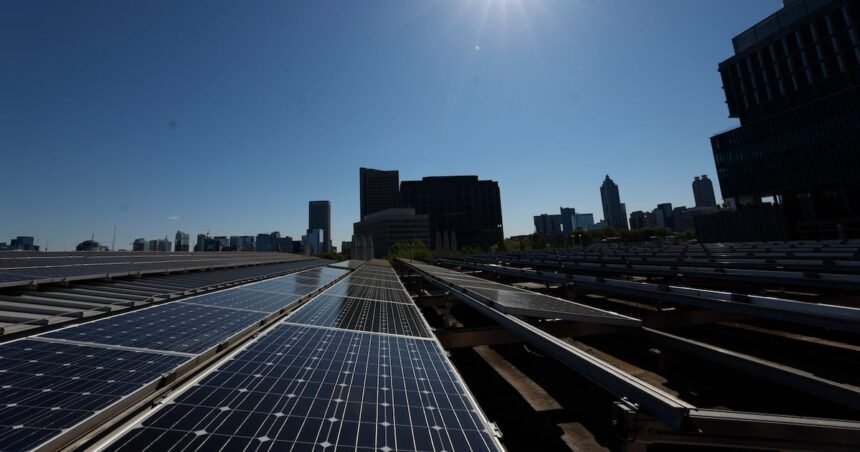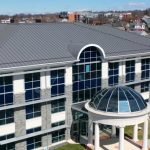Gov. Brian Kemp said in the release that Solarcycle’s announcement helps Georgia “lead the nation in attracting jobs from emerging industries,” especially across the solar panel, electric vehicle and battery sectors.
Georgia has emerged as a major force in clean energy manufacturing and EVs. The state has aggressively courted these companies, and the Biden administration has made EVs and green energy a cornerstone of its climate and economic initiatives.
In February, Solarcycle announced a $344 million glass manufacturing plant in Cedartown, about 60 miles northwest of Atlanta. Located at Cedartown North Business Park along U.S. 27, the 1.1-million-square-foot factory is still under construction and is expected to employ 617 people.
The expansion will be located across the street at 270 North Park Blvd., an existing 255,000-square-foot building that will be renovated to house the company’s recycling operations. It will use recycled materials from retired solar panels to make up to 6 gigawatts worth of solar glass every year.
In total, Solarcycle’s investment is now estimated at $406 million, and the company has said it will hire more than 1,250 workers across the two buildings.
State and local officials offered Solarcycle nearly $69 million in incentives to woo the company’s initial investment to Polk County, according to an offer letter obtained through an Open Records request. The offer included roughly $26 million in local property tax breaks over a 10-year period, $14 million in tax savings on machinery and about $12 million in job tax credits, in addition to other site preparation grants and tax incentives.
A Georgia Department of Economic Development spokeswoman said incentive negotiations remain active for the expansion.
“We are pleased to accelerate our work in Cedartown in partnership with Gov. Kemp and Polk County.” Suvi Sharma, CEO and co-founder at Solarcycle, said in the release. “In response to continued demand for solar recycling and domestic manufacturing, we will be able to scale operations and begin hiring sooner than originally planned.”
Steve Schaefer /
Steve Schaefer /
The recycling facility is expected to be operational by the second half of 2025, while the glass manufacturing plant is estimated to open in 2026.
Solarcycle announced earlier this year it plans to work with Qcells — which operates two hulking solar panel manufacturing plants in North Georgia — to keep components from damaged or decommissioned panels out of landfills and instead reuse much of the material for new panels.
Solarcycle operates recycling facilities in Texas and Arizona and uses patented technology that it says can allow the company “to extract up to 95% of the value from used solar panels” for reuse in the solar manufacturing supply chain.
Solar is the fastest-growing source of new clean energy in the U.S. But what to do with aging solar panels after they need to be replaced is one challenge for the industry. Without recycling, decommissioned solar installations could produce 170,000 to 1 million tons of waste in the U.S. by 2030, according to one estimate.












